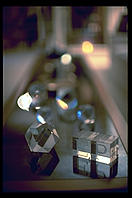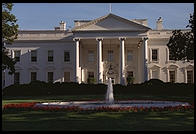Site Home : Politics : One Article

- 1960s: Philips Compact Cassette introduced. Record companies
predict doom as consumers can copy LPs. Attempts to get tax on blank
tape fail.
- 1987: DAT recorders introduced but flop in consumer market.
- 1989: DAT Bill introduced and sent to Senate Commerce Committee.
Bill would hobble consumer DAT units and prevent them from making
copies of copies (the SCMS system).
- spring 1990: Senate committee holds hearings on DAT Bill. Because
the bill is "controversial", CSPAN is there to cover the event and the
proceedings are broadcast several times. Testimony by Philip
Greenspun and songwriter's expert to committee that SCMS system was
easy to bypass helped kill the bill in committee. Mostly the bill
died because record companies were lukewarm; they really wanted a tax
that would be paid to them.
- 1991: Senator Dennis DeConcini (D-Ariz. and member of
the Keating
Five) introduces Audio Home Recording Act of 1991, which provides for
the SCMS system PLUS new taxes: initially 3% on media and 2% on
digital audio recorders. A new government bureaucracy would be
created to collect the tax from media and recorder makers and then pay
it back to record companies (40%), music publishers (17%), and artists
(the remainder). The bill also creates seven new legal causes of
action (predicates for a lawsuit).
- spring 1992: hearings held by DeConcini. MTV is the only news
organization to cover the event (CSPAN does not show up because the
bill is not "controversial"). Most of the witnesses are people who
will collect money from the tax and almost all are in favor. The only
serious negative testimony comes
from Philip Greenspun.
- summer 1992: the bill passes the Senate by "unanimous consent."
What this means is that at midnight, when the chamber is nearly empty,
a Senator stands up and asks "does anyone object to this bill." If
nobody does, the bill is passed. This is how most new taxes and
special breaks for the well-connected get through Congress. No vote,
no CSPAN coverage, no news coverage. The bill passes the House in
similar fashion.
- November 1992: one day before he is voted out of office by the
American people, George "No New Taxes" Bush signs the bill creating a
new kind of tax, two new taxes, a new bureaucracy, and seven new legal
causes of action.
Photos: from my
Big Government road trip.
philg@mit.edu


